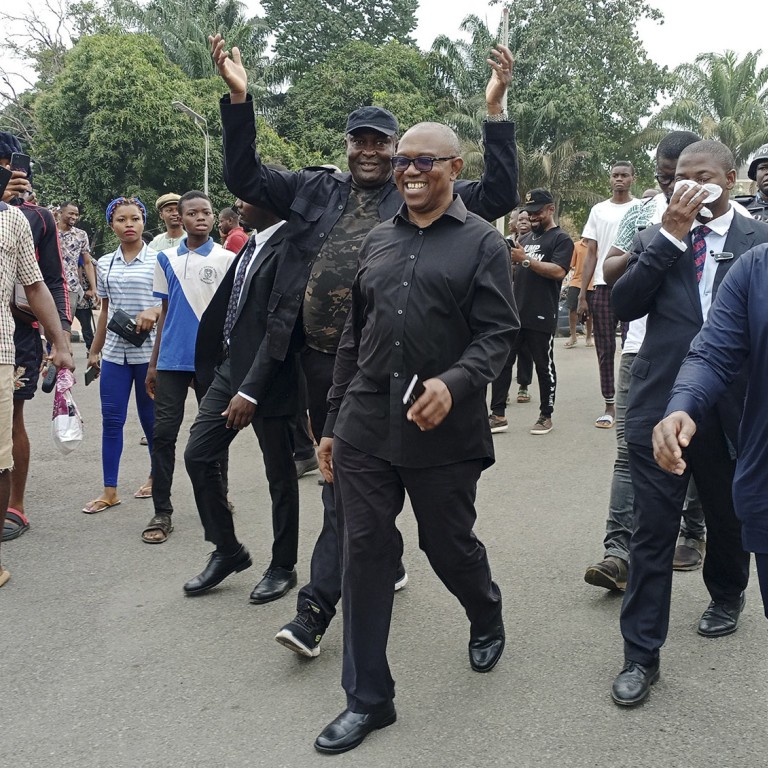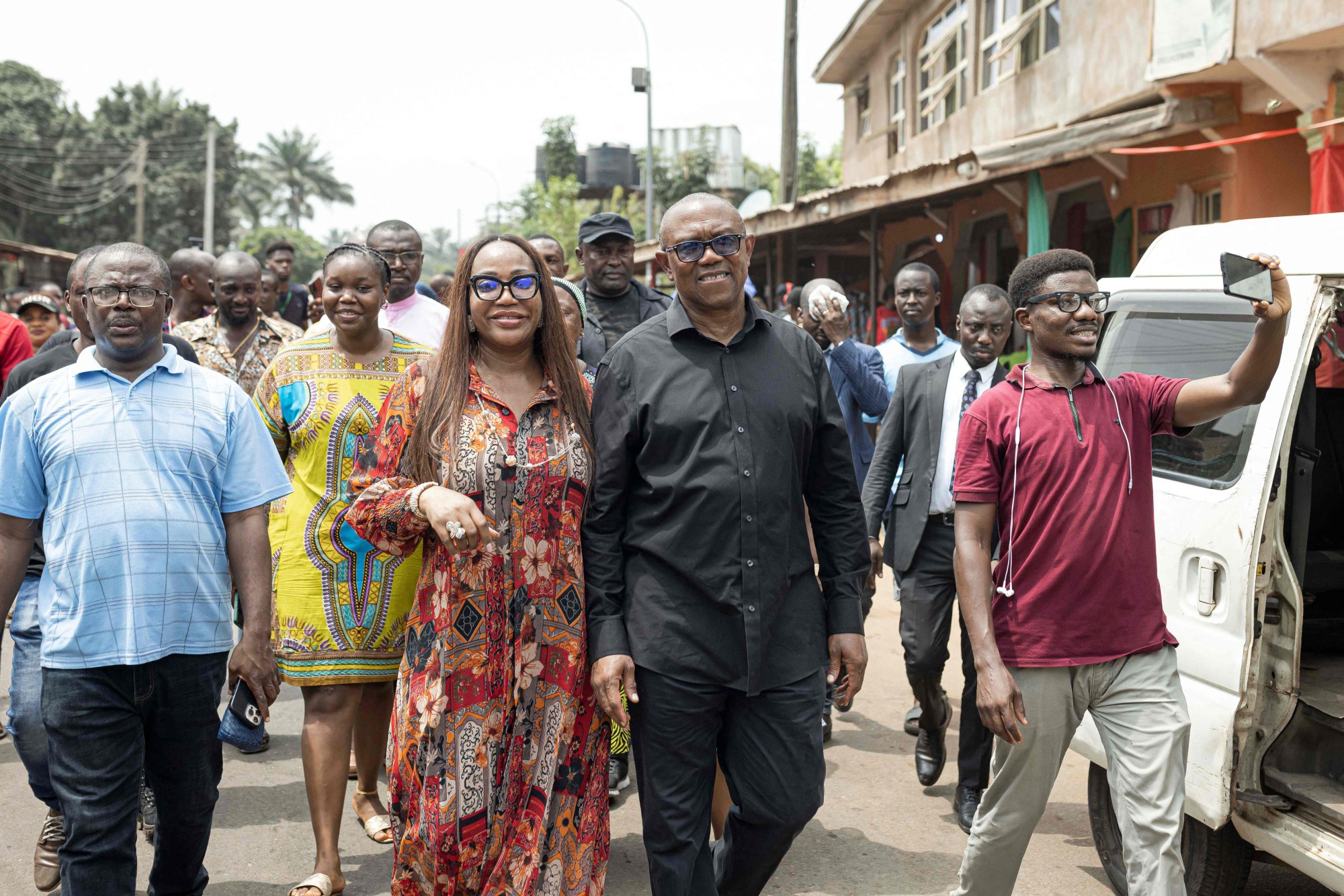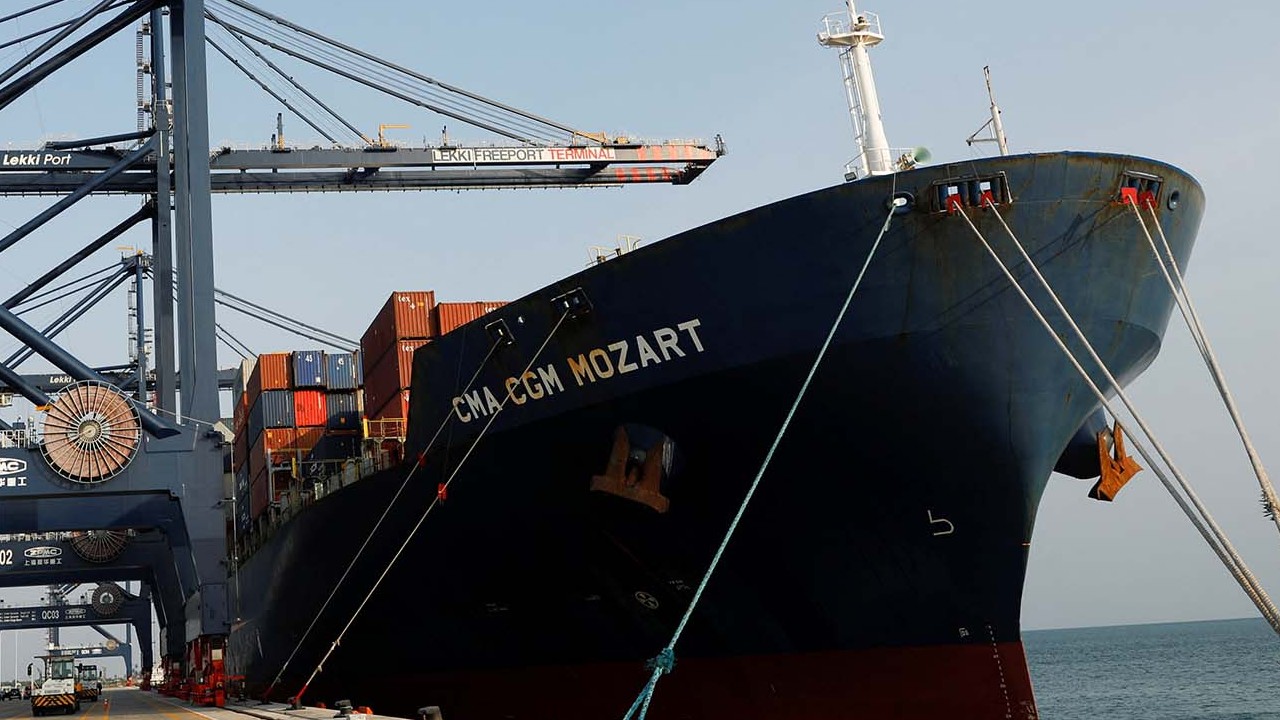
Nigeria’s Peter Obi wins in Lagos state in presidential election
- Obi’s campaign attracted young and urban voters fed up with corruption
- Lagos, Africa’s biggest city, is in Lagos state; Obi urged voters to reject the two parties that have run continent’s most populous nation for quarter of a century
Nigerian presidential candidate Peter Obi, whose campaign attracted young people and urban voters fed up with corrupt politics, has won most votes in the commercial hub of Lagos state, where Africa’s biggest city is located.
Nigeria’s electoral commission began announcing state-by-state results in the national elections on Sunday, although it is not expected to name a victor in the race to succeed President Muhammadu Buhari for several days.
Obi of the Labour Party got 582,454 votes, just ahead of 572,606 for former Lagos governor Bola Tinubu for the governing All Progressives Congress party, electoral commission data showed on Monday. Lagos was previously Tinubu’s main stronghold.
Atiku Abubakar of the main opposition People’s Democratic Party got 75,750 votes.
Obi’s campaign called on voters to reject the two parties that have run Africa’s most populous nation for a quarter of a century, under whose governance corruption has flourished and insecurity has spread across the country.
Lagos contributes about 40 per cent of the gross domestic product of Africa’s biggest economy. Since 1999, the state has voted for parties supported by Tinubu, who has long been the most powerful politician in Lagos.
Obi, 61, was most popular with the young, but especially urban, relatively educated voters with access to smartphones and social media. But he still faces an uphill struggle in rural areas with a less sophisticated audience.

Nearly every opinion poll before Saturday’s presidential election put Obi far out in front, making him the first third-party candidate with a real shot at the top job in Africa’s biggest democracy.
The two major parties scoff, as do many observers. Despite the former Anambra state governor’s passionate young following — known as “Obidients” — Nigeria’s complex electoral maths and the sheer cost of mounting a credible national campaign means he may come up short.
To win in the first round, a candidate needs to secure a simple majority of all votes cast and at least a quarter of the votes in two-thirds of Nigeria’s 36 states and the capital, Abuja. A problem for Obi is that his support is concentrated in the south, which has far lower turnout than the more populous north.
The other challenge is organisational. Nigerian elections require people in every state and municipality to get people out to vote and, often, pay them to do it.
The nation’s electoral commission has vowed to fight vote buying, but it is still a common practice, and opponents argue that Obi’s Labour Party lacks both the money and the ground game to win it all.
Bola Ahmed Tinubu’s ruling All Progressives Congress and Atiku Abubakar’s Peoples Democratic Party have both in spades, and they were both expecting to prove the polls wrong.
Additional reporting by Bloomberg


